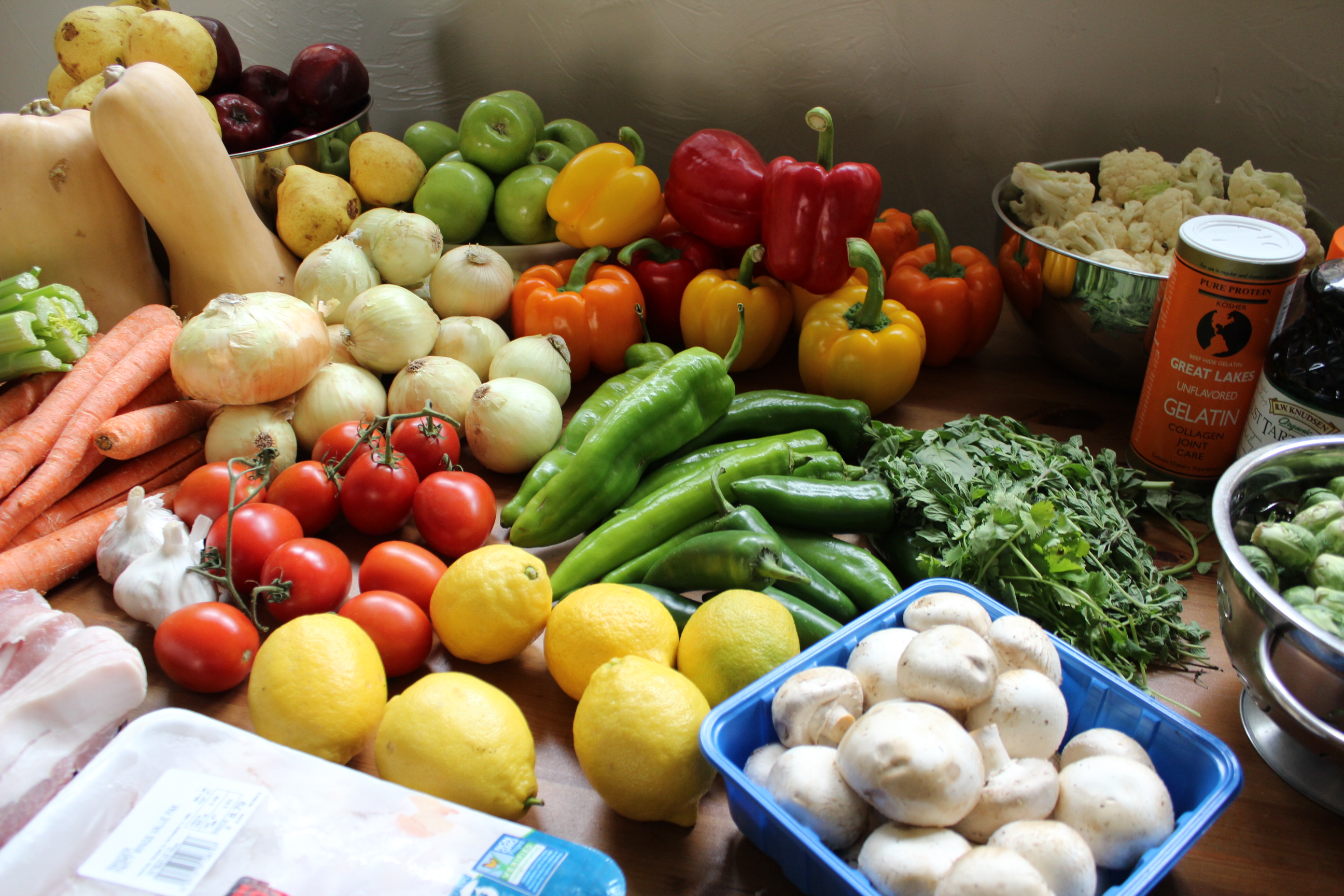
As we’re doing the GAPS Intro Challenge I’m getting frantic emails, presumably from people who just went to the grocery store and priced out organic free range meats and vegetables as they prepare to start the GAPS Intro.
Some common questions:
- Is there a point to doing GAPS if I can’t afford all organic/pastured meats and eggs?
- How important are organic veggies on the GAPS Diet?
- How do I prioritize what to buy organic on GAPS?
- How do I justify this expense? It’s 4 x what I usually spend on food!
You will still see an improvement even if using conventional (not organic) foods.
The Gut and Psychology Syndrome Diet is based on the Specific Carbohydrate Diet, which is a very easy to digest diet full of healthy fats, proteins, vitamins, and minerals. Refined sugars are removed, along with gluten and grains, which often are causing hidden problems of inflammation in the body but go unnoticed because they are eaten so often.
Prioritize Organics with Animal foods, Ferments, and the ‘Dirty Dozen’
Animal foods are the most important to buy organic/grassfed. When they are high quality food, they are even more nourishing. The protein and fats in healthily raised animals are higher quality than conventionally raised meats, and will provide better fuel for the body to be nourished and heal.
The least expensive way that I’ve found to get meat is to get it directly from the farmers, in bulk. In Montana I found my farmer by visiting my local health food store, seeing what ‘local’ beef they were selling, and then contacting that farmer. He sold it to me for about 60% of what the health food store was charging, and it was a win-win. He even delivered, but that was just a bonus! In Arizona I found a butcher who did the whole thing- he raised cows, then owned the butcher shop that processed them too. I went in and asked him if he had cuts that were less expensive, or if he could put together a package of things that could cost less/pound. He happily did that, and I picked up one of his ‘packages’ once every 3 months or so.
Being an easy to please customer goes far with farmers.
If you can only choose some organic/grassfed foods, I would first choose to make my stock out of organic meat/bones. Then choose the rest of my meat to be organic.
For vegetables, because the ferments are so important in GAPS choose organics for ferments, juicing as well (organic juicing carrots aren’t expensive), and then either choose organic or avoid the dirty dozen- the list of foods with the most pesticide residue.
The expense of GAPS
The cost of food on the GAPS diet is often a shock- adding up the cost of meat alone is enough to make frugal grocery store shoppers twitch. There’s no doubt about it, grains are cheap fillers to round out meals and fill up bellies. I look at GAPS as being a medically necessary diet for my family. If a prescription medication could do all of what GAPS does, with no side effects, I know I would find a way to pay $200/month for this ‘medication’. In the same way, I see the money spent on food as an investment into my children’s health– money spent on the GAPS diet is money that isn’t spent on doctor’s visits, missed work due to health issues, tutors, adaptive equipment, and prescription medications.
Believe me, I know that sometimes the money just is not there to work with. In that case try to prioritize as I talked about above, or think about if there is any other way I can cut expenses or bring in a little extra income to pay for good quality food. If it helps, when we started GAPS we had less money to spend per month than a family of our size would get on food stamps and we were still able to swing it.
Since we have a little more money to spend on groceries now, I don’t keep such a low budget because that just isn’t a huge priority for me right now- I’d rather cut in other areas and have a little more wiggle room with the groceries.
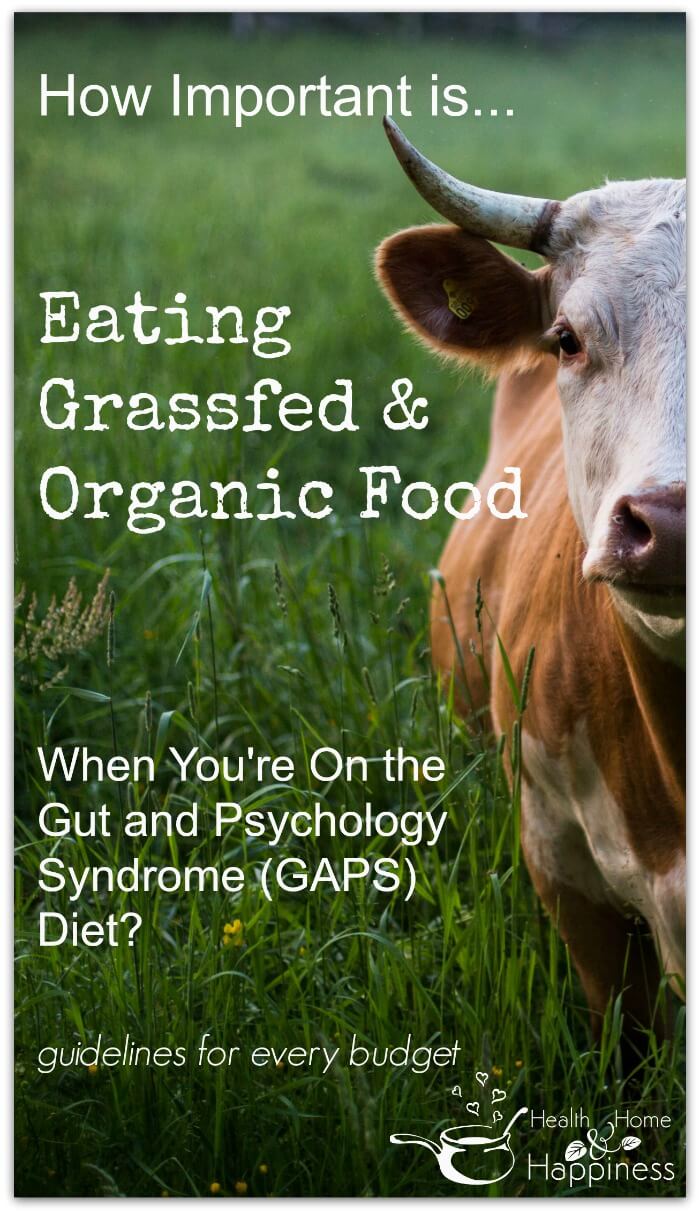
Learn how to heal leaky gut

60-page ebook of all my best GAPS Diet (Gut and Psychology Syndrome) articles all in one place.


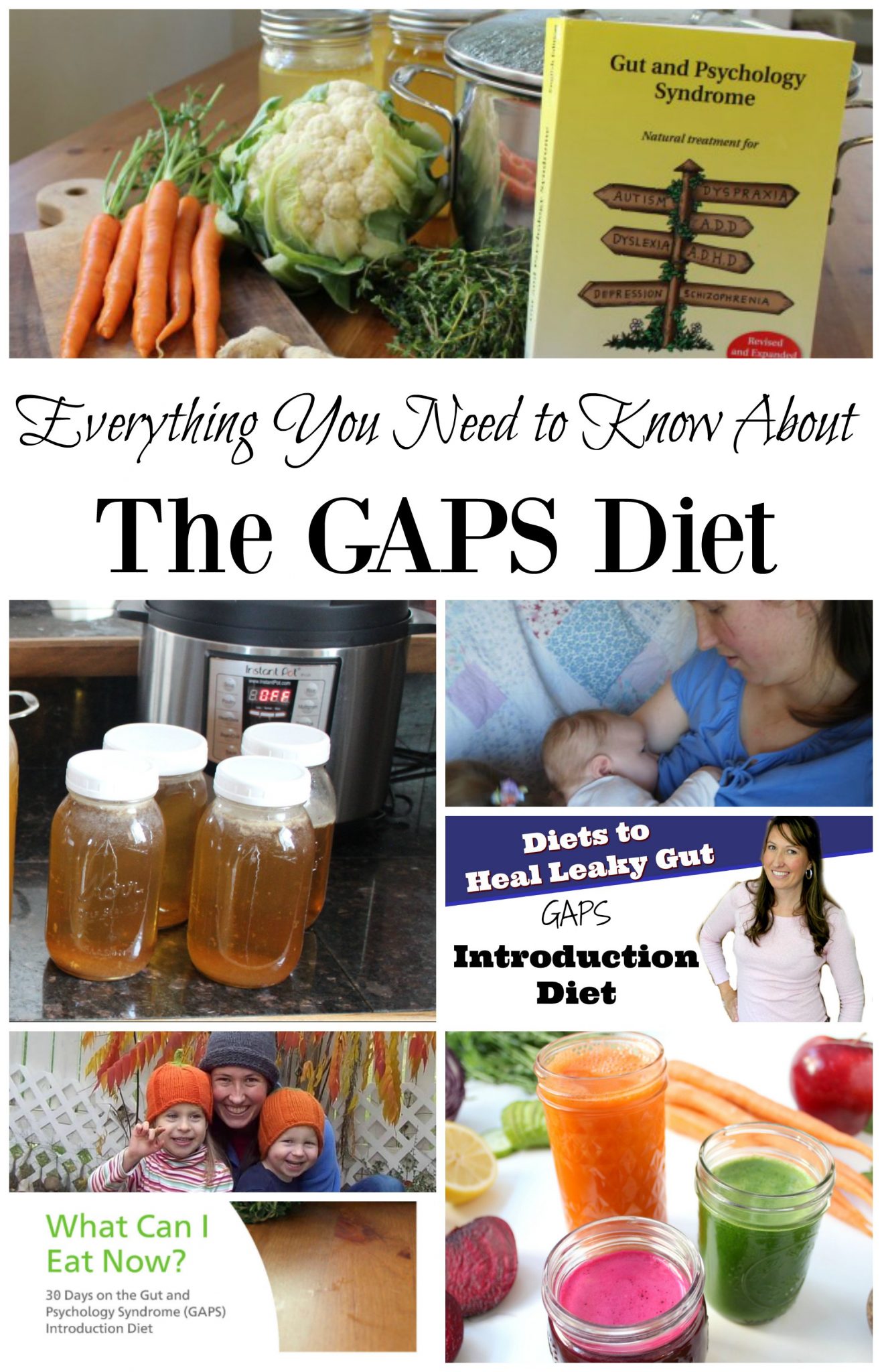
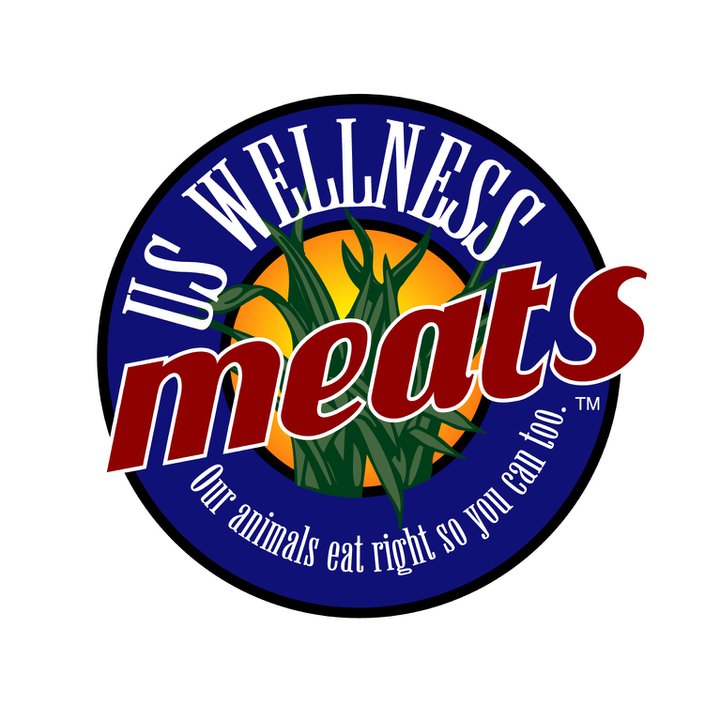
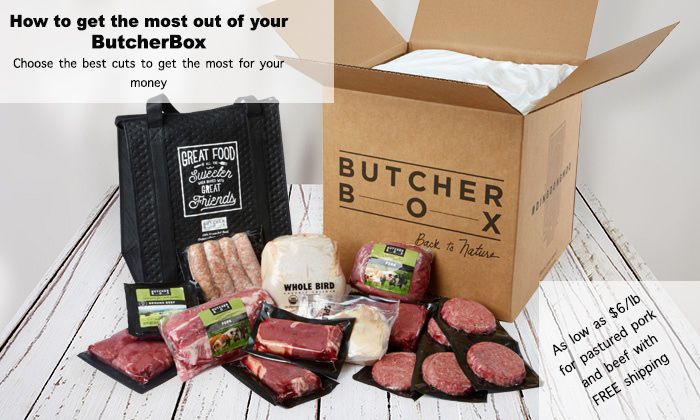


We are a family on food stamps so I always get really excited for these types of posts. Sadly, most of the time, they are still way out of our budget. It seems that bloggers always reference the SNAP page (which I’ve never known anyone to get as most States use they’re own programs which have significantly smaller budgets). For example most families of four I know get roughly $350ish a month, NOT $600+!!! The other problem is that you can’t use you benefits except at brick and mortar retailers-so we miss out on a lot of bulk buying online. Would you consider writing a post that fits within these parameters-or maybe passing the idea along to some other bloggers you think might be interested? I know so many families who would be blessed by such a post! Especially if we could see a family do a ‘real food stamp’ budget challenge (even if the had a budget greater than ours, but shopped by the same constraints)!!! I appreciate all your hard work in pulling together these posts and hope you think about writing another FS one :D
Best wishes,
Morgan
Morgan, I think if you get reduced benefits, it’s because you make over the income amount? Or maybe it was just Montana and Arizona gave out quite a bit (I know families who have used SNAP in both states)? Being honest- the year we started GAPS our income for a family of 4 was 28K. We also got SSI for about $500/month, that’s what put us over so we didn’t qualify for food stamps. We got WIC too and I used their milk to make yogurt, used the cheese and beans/lentils too. Costco accepts food stamps now, which is where I did most of my grocery shopping when I lived in Montana. Even if you only get $350/month for food stamps, you can spend more than that on food… the government just doesn’t cover it ;)
We also had applied for the energy assistance program, which freed up money we would have spent on heating to use on food.
I really don’t think it’s possible to do GAPS under about $400/month, so I am hesitant to try to do a challenge that is $350/month for a family of 4. At a certain point it’s easier to just make another couple hundred dollars (childcare, house cleaning, second jobs, selling things on craigslist) than it is to try to cut the grocery spending even further. With all the coupon blogs this most likely isn’t a popular stance, but it’s just what I’ve found to be true in my life.
What were you spending that first year on food per month? I make around that, no car, and only have about $100 month for food.
The families I know all make under $2000 a month for a family of four and receive under $400 month in EBT. None of us receive heating or energy assistance but we do get WIC (can you tell I know a lot of families in our situation, haha). I’m currently trying to figure out what is and isn’t cheaper as Costco and so far so good :D
I appreciate you taking the time to answer this. A lot of people just suggest coupons. I use them when I can but it’s been difficult to find ones for products we use. No trouble finding them for Pop Tarts or Soda though, lol (which we don’t eat).
So far the plan of attack is to wait until tax returns and go in on farm shares with some friends and just keep doing the best we can. I was hoping to eliminate some of the stress of shopping by staying within our allotted budget exactly but maybe that just isn’t realistic. I think I’ve been seeing any ‘overages’ as a failure or mismanagement on my part…time to rethink that, lol!
Again thank you so much. Take care.
-M
I hear ya! yes, the bonus with being that low of income is you also get EIC and a tax refund ;) I used to take $700 or so of it and stock up on meat, and pantry goods like tomato products and coconut products. I’m glad you found that helpful, I’m always nervous about posting money related stuff, because I don’t judge people, but I have been creative and I think that others can be too… and some people get offended by that.
I think Dave Ramsey has said that no family of four should ever have less than $600/month to spend on food… that when he says ‘beans and rice’ he doesn’t actually mean that, he just doesn’t want broke people buying high end ‘treat’ foods. I was relieved when I heard that, because I somehow had it in my mind that I should be spending like $200/month for a family of 4… ;)
I haven’t found early intro too prohibitive. We went to the farmers market and bought the main veggies in bulk: zucchini, squash, cauliflower, broccoli, onions. Because we bought so much they discounted and it came to a very good price. Check for special offers and discounts for bulk buying, call the suppliers and see if they can sell at wholesale price if you are, say, getting through a stack of eggs.
Thanks Cara! Too funny I had just asked on FB about this and you were posting today! I’m going to be doing some mock lists for pricing, etc to plan to do GAP’s soon and keep my fingers crossed that hubby has a job by the New Year……we have cut all we can just to pay the mortgage, insurance, gas, food, etc. but I’m searching ways to be able to do this…..thanks for the great post!
It’s really important to see food as an investment in health – it’s odd how most of the world see’s it in the opposite way. Like, you need to have great health insurance and so you can eat whatever you like…
There’s no guarantee or instant results to eating good quality results usually, but I’ve found I eat more peacefully and I eat less when I know the food has been nurtured well.
A great way I’ve found is to go to the local market and speak to producers directly – lots of people will grow in an organic way, without having the certification yet. And small scale farming is always better than large too, of course!
Hi Cara
I have been wondering exactly the same thing and trying to surf the net for some answers just last night!
We just can’t get organic meats here in Singapore. And even with those that claim to be (6 – 7 times more than conventional meats) I am not sure how true their claims are.
So in our case I would have to write off ALL possibilities of getting any organic meats – would GAPS then be pointless???
I really want to heal our guts and bvad eczema outbreaks but if eating and drinking soup from inorganic meats will do more harm then I’d rather not.
Thanks!
i have the same question. i live in saudi arabia and we can sometimes buy organic rabbit, ostrich, or lamb. but most of the time there is no organic meat for sale here at any price. and never any bones, fats, or organs. the closest we can get is to buy and slaughter our own which we sometimes do for birds (chicken, turkey, duck). and i’m thinking about buying a lamb once i have room in the freezer. problem is that we don’t speak much arabic so talking to farmers is very difficult for us to find out what the animals are fed, where they are kept, how long they’ve been in the stockyard. we just look for healthy looking animals. we can get raw milk also, very easily, but have the same problem.
i’ve got fclo, gelatin (although not a grass-fed brand), himalayan salt, evco, probiotics, raw honey, and kerrygold butter (when it’s in stock). i can get eggs that are labeled organic and we have some organic vegetables and organic (but pasteurized) dairy. if i use all of that with regular store bought meat , bones, and organs will that be ok? or should i try to do a mostly vegetarian GAPS using fish bones and, 3 or 4 times a week, some fish?
any feedback is appreciated. thank you so much.
Did you ever get any feedback on your question? Did you try the GAPS diet with limited organic foods? How did it go?
How much would you say you spend each month on GAPS?
600-800/month
I am echoing Amanda’s question. I do think it’s worthwhile to spend what you can on good quality food — however I have no idea how much to even shoot for.
I don’t know what is reasonable so hearing some ranges helps. It’s also important to note that the family makeup is often different. For example, our family of 4 has a toddler and an infant, so that’s different than a family of four with two teenagers.
Are we talking $200/week in groceries? More? Less?
Hearing what other people spend would be truly helpful for me!
Yes, I think 200/week is a good starting point. Mine are little and I still spend about that amount.
I live in CA and food expense here is high. It has taken me about five months to figure out how to do between $200 and $300 a week on GAPS for a family of four. There are definite tricks to learn, like how to shop the cheaper cuts of meat, etc. But you are right, once I stopped spending on all of the store junk, eating out, and prescription meds, it is a wash if not cheaper. Funny how people will shell out so much money on hair spray or dinner out, but are sticker shocked with a healthy food budget. Also, one thing to consider with organic or non, some can eat a specific food if it is organic but not if it is conventional. You can also have an entirely different allergic response to a GMO food – for example and allergy to GMO corn but not conventional corn. ‘Food’ for thought! :)
Just wanted to say– LOVE your new site!! BEAUTIFUL!!
Love visiting your blog!!
I agree, the new look is awesome!
I also spend about $200/week on GAPS, for a family of four (two are on GAPS, two are eating generally grain-free but not officially GAPS).
Echoing Denise and Kendahl, I LOVE the new look! Typically, when a blogger updates their site it takes me a couple of visits to feel my way around again – but yours is wonderful. The colors are so peaceful and beautiful and it is so easy to navigate. Great job!
We are in the finishing up stages of Intro (hubby, me and grown daughter – two teens are half-heartedly participating :) We are spending easily $200/week — and that’s just veggies and eggs! We already had our freezer stocked with pastured meats. We were all starving the first few weeks and it felt like we were eating all. the. time! It has leveled out to some degree. Adding in some things with nutbutters helped. But, as some others have voiced – we have only had something non-homemade twice in four weeks and just factoring in what our fast-food expenses used to be easily offsets our expenses to some degree.
hi cara! i am a brand new GAPS girl (this weekend!) and nursing mom, and i just wanted to say thank you, thank you so much for all your informative posts and wonderful recipes! i look forward to trying all of them. you have been such a help to me already :)
truly, summer
ps. i found you via the nourishing gourmet- loved what you had to say over there!
A local butcher in town said their meat is grassfed until the last month when fattened on grains. No antibiotics or hormones are used. I know this is not ideal, but is it better than grain fed all their life?
This is a question that I researched when devising of I could commit to gaps financially, and Dr. Campbell MC Bride answered in her Q and A on her site that if you can’t do organic for whatever reason you can still see great results from the diet, and many of her patients do. I was glad to hear that because with few exceptions I can’t afford organic, especially meats. So far we’re doing great without.
LOVE this website, making a recipe this morning from it while reading posts…
I find my monthly EBT covers about 3 weeks of organic food for my toddler and I.. This encouraged me to drop the boxed organic granola bars and other organic child-marketed “quick” snacks that can be pricey (even on sale)…and spend more time making and baking and not feeling guilty about it. I mean, I am loving him by teaching how to nourish his body with healthy food choices. If we pass up the tasty treats at the market, his mood will thank me later!
So…JUST WANTED TO NOTE… i think processing makes a huge impact on how food affects us. I mean, it can change food at the cellular level, reduce the enzymes needed to digest it, or introduce toxins, so how could it not?
Buying fresh organic foods, although more expensive, is a better value because it is more pure. Take honey, for example. My mom couldn’t eat it, until I bought raw organic honey. Which is not clear, but cloudy and never heated over 114 (if I remember correctly) in processing. Store bought Honey is normally filtered and treated and heated, and sold in a little bear :)…bear aside, not as close to the original state as organic.
Googling how different foods are raised and processed can be insightful…have you ever questioned canola oil, conventional chicken? This may help feeling better about making the choice to spend more money on organics. I find organics (in Southern Oregon) at Rays, Safeway, Costco, Fred Meyers, Food 4 Less, and the Coop. The last two are more impressive, with the Coop being unbeatable in the quality and abundance of fresh produce. All take EBT.
Do you mind if I quote a couple of your articles as long
as I provide credit and sources back to your blog?
My website is in the very same area of interest as yours and my users would certainly benefit from a lot of the information you provide here.
Please let me know if this alright with you. Appreciate it!